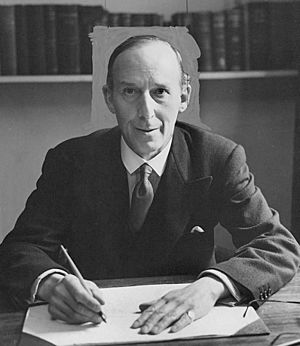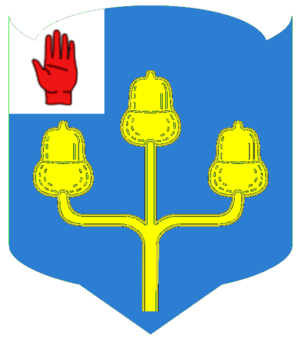Henry Willink facts for kids
Quick facts for kids
Sir Henry Willink
|
|
|---|---|

Willink in 1948
|
|
| Minister of Health | |
| In office 1943–1945 |
|
| Preceded by | Ernest Brown |
| Succeeded by | Aneurin Bevan |
| Member of Parliament for Croydon North |
|
| In office 19 June 1940 – 29 January 1948 |
|
| Preceded by | Glyn Mason |
| Succeeded by | Fred Harris |
| Personal details | |
| Born |
Henry Willink
7 March 1894 Liverpool, Lancashire |
| Died | 20 July 1973 (aged 79) |
| Political party | Conservative |
Sir Henry Urmston Willink (born March 7, 1894 – died July 20, 1973) was an important British politician and public servant. He was a member of the Conservative Party. From 1940, he served as a Member of Parliament (MP). In 1943, he became the Minister of Health.
During his time as Minister, he helped people made homeless by the London Blitz. He also played a part in creating the idea for a free healthcare system. This idea led to a plan called A National Health Service in 1944. It suggested a healthcare system that would be free for everyone. Later, the Labour Party created the actual National Health Service. This service was a bit different from Willink's original ideas. He worried that taking over all hospitals would "destroy so much in this country that we value."
Contents
Early Life and War Hero
Henry Willink was born in Liverpool, England. He went to Eton College, a famous school, and then to Trinity College, Cambridge. Before he finished his degree, he joined the army. He served in the Royal Field Artillery during the First World War.
When he was only 22, Willink commanded a group of artillery guns. This was during the 1916 Battle of the Somme, a very big and difficult battle. For his bravery, he received the Military Cross and the Croix de Guerre. These are special awards for military service. After the war, he became a lawyer in 1920. He was made a King's Counsel in 1935, which is a high rank for a lawyer.
Becoming a Politician
Willink became a Member of Parliament (MP) in 1940. He won a special election for the Croydon North area. There was only one other candidate, who did not get many votes. In the same year, he was given a special job. He became the Special Commissioner for people who lost their homes in London. This was because of the bombing raids during the war, known as the London Blitz.
In 1943, Willink became a privy counsellor. This is an important advisory role to the King or Queen. In the same year, he was made Minister of Health. He stayed in this job until 1945, when the Conservative Party lost the general election.
Planning for Healthcare
As Minister of Health, Willink worked on a very important plan. This plan was called A National Health Service. It followed ideas from the Beveridge Report. The plan suggested creating a healthcare system for everyone. It would be free of charge and available to all citizens.
When the Labour Party took over in 1945, they created their own healthcare plan. They had supported Willink's ideas, but their plan was different. The main difference was that Labour's plan made hospitals fully owned by the government. Willink's plan had suggested a "publicly organised" service, not necessarily "publicly provided."
Willink kept his MP seat in the 1945 general election. He won by a small number of votes. He resigned from Parliament on January 29, 1948. After he left, another Conservative politician, Fred Harris, won the next election for Croydon North.
Later Public Roles
Even after leaving Parliament, Willink continued to serve the public. In 1948, he became the Master of Magdalene College, Cambridge. This is a very important leadership role at the university. He held this position until 1966. From 1953 to 1955, he was also the Vice-Chancellor of the University of Cambridge. This means he was the head of the entire university.
Willink also helped to create the Royal College of General Practitioners. This organization helps train and support doctors who work in local communities. He said this project was "one of the very best projects with which I have ever been involved in my life."
In 1957, he was given the title of baronet. This is a special honor from the King or Queen. He also received an honorary degree from the University of Melbourne in Australia. His important papers and documents are kept at Churchill College, Cambridge.
Arms
 | Laphonza Butler |
 | Daisy Bates |
 | Elizabeth Piper Ensley |


